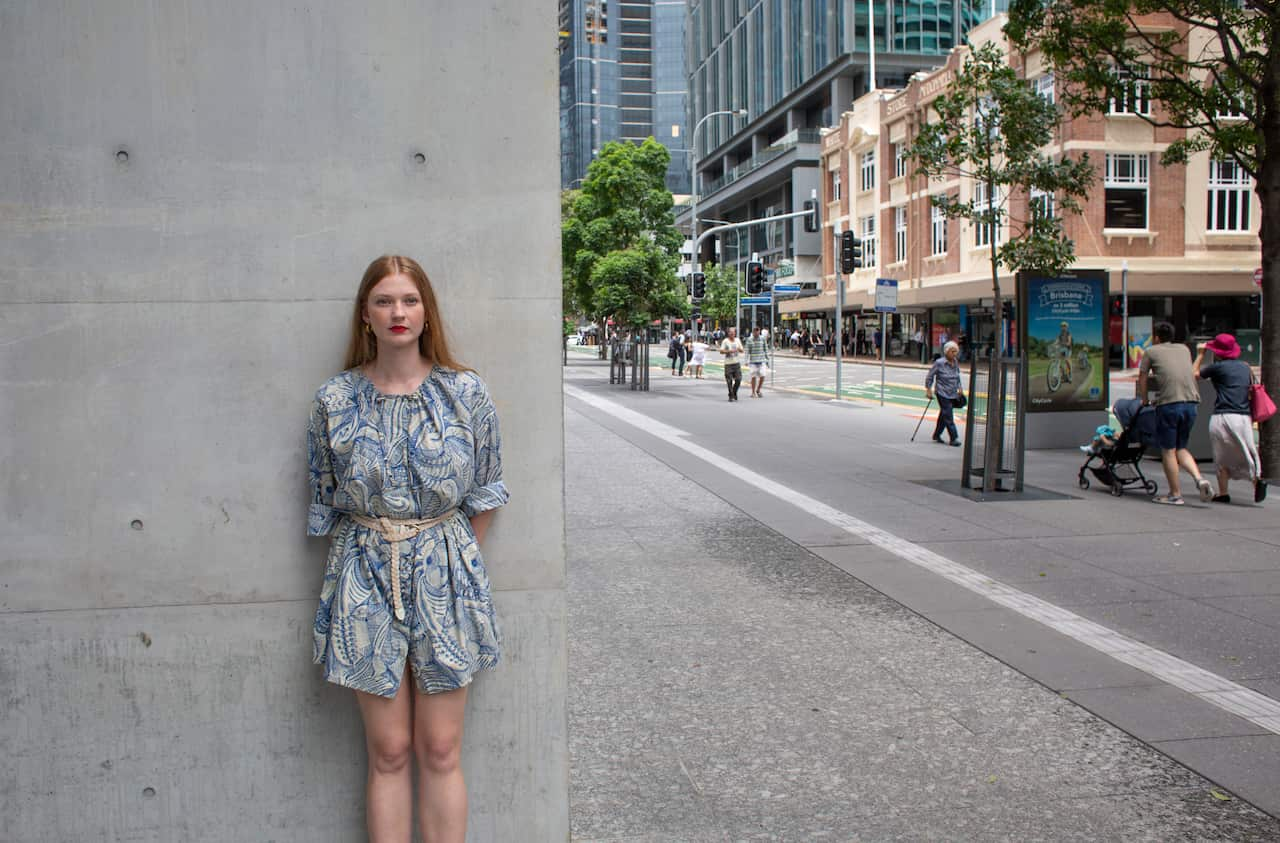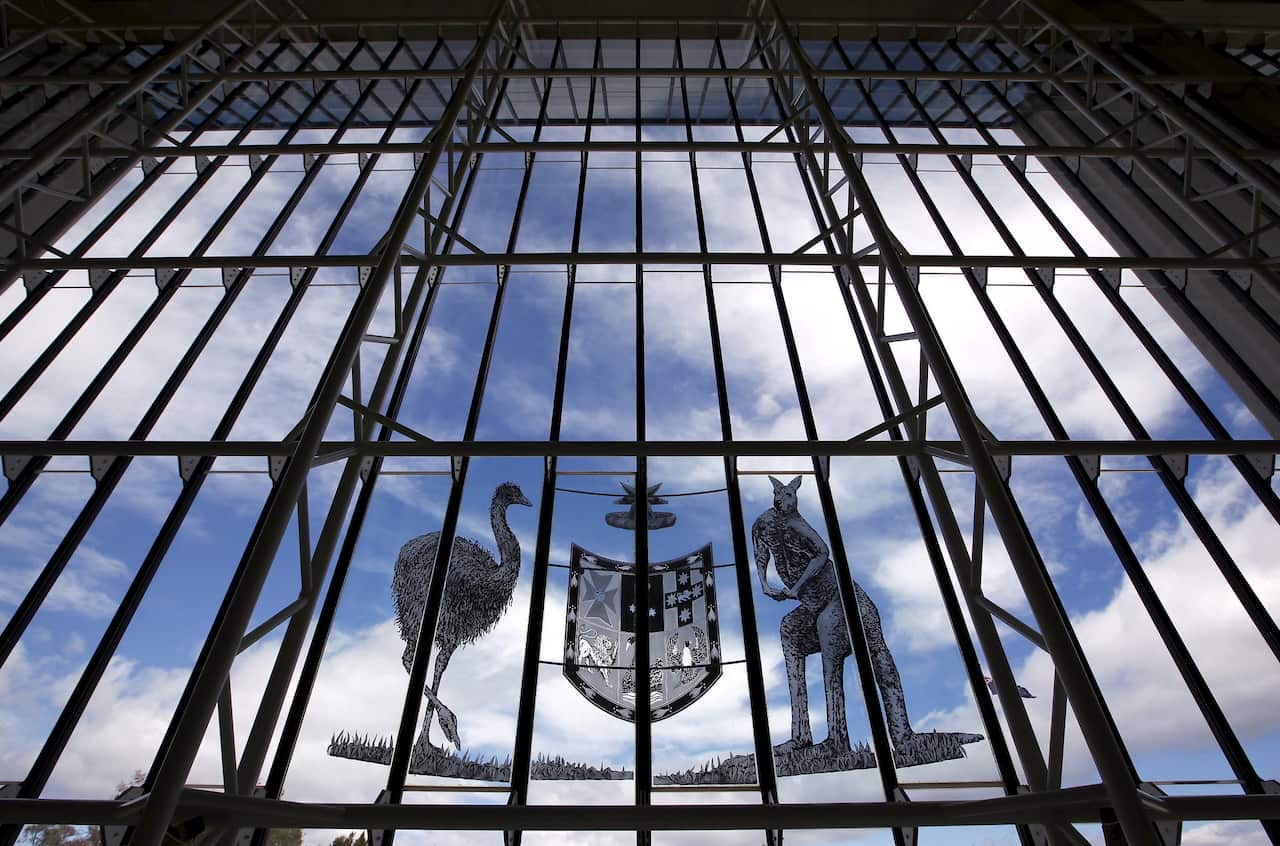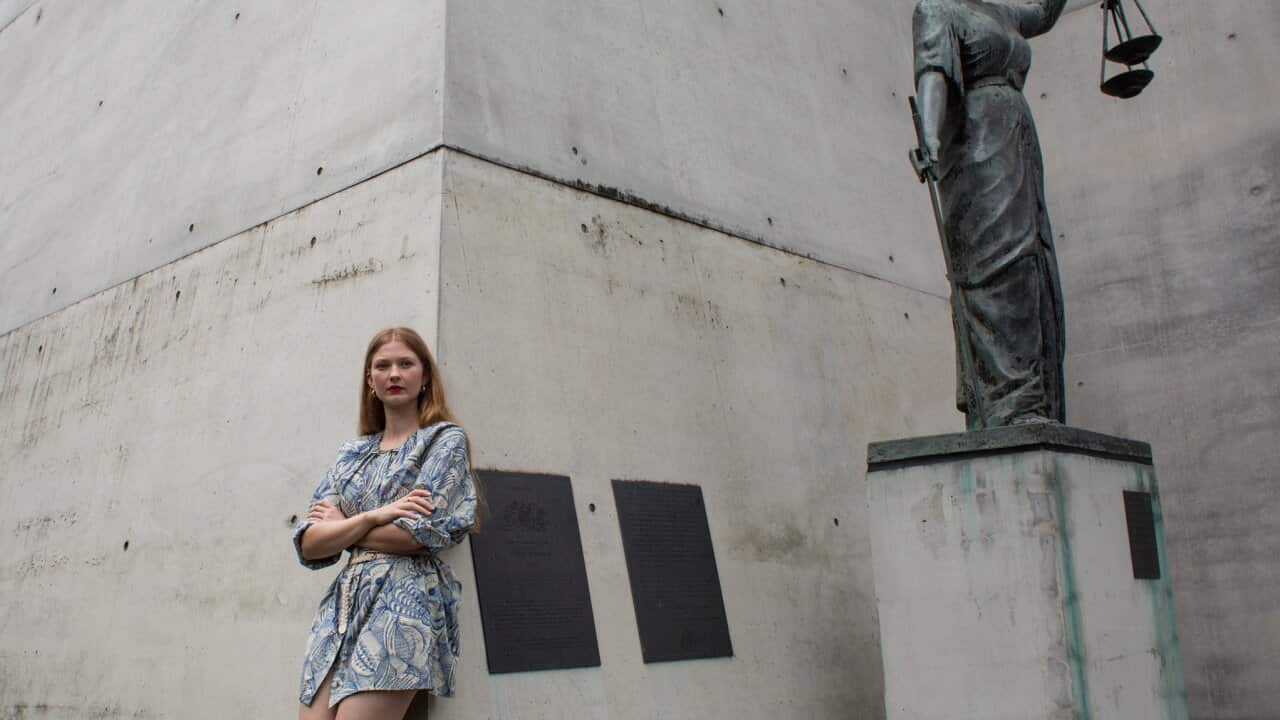Steven Fisher was prohibited by law from identifying himself as a survivor of sexual abuse, even after the conviction of his assailant, an Anglican priest.
Saxon Mullins wanted to speak out, too, after she reported being raped in a Sydney alley, but prosecutors told her to keep quiet despite intense media attention to her case.
“I was watching this all go by, saying, ‘That’s my life,'” she said. “It’s not just some girl. I’m real.”
Australia, a nation that prides itself on blunt talk and a “fair go” for all, often can’t seem to manage either when it comes to prosecuting the most sensitive crimes. The country shrouds law enforcement and the courts in unusual secrecy, particularly in cases of sexual and family violence. That limits public scrutiny and, critics say, tilts the scales of justice against the victims.
Outrage has been building since at least 2017, when prosecutors in Melbourne charged Cardinal George Pell, then the country’s most senior Catholic prelate and an adviser to Pope Francis, with “historical sexual offenses” after allegations surfaced that he had abused minors beginning early in his priesthood.

A judge sent the charges to trial in April but prevented anything from being published in Australia on the proceedings, including news of Pell’s conviction, until Tuesday, when he lifted his suppression order.
Even foreign news outlets with offices in Australia, including The New York Times, were forced to withhold news from their websites and readers worldwide.
Australia’s approach to law and order — with sweeping gag orders that prevent reporting on trials, a confounding web of privacy regulations and defamation laws that favor plaintiffs — are intended to protect both victims and defendants, and to ensure fairness in court.
But in the #MeToo era, and in the aftermath of the sexual abuse scandals shaking the Catholic Church, many in Australia say the emphasis on secrecy and on protecting the rights of defendants — men, mostly, when it comes to sexual violence — has gone too far, enabling a broader lack of accountability.
“We’ve had a system for decades that privileges the privacy of the accused over the safety of the victim,” said Kate Fitz-Gibbon, a senior lecturer in criminology at Monash University in Melbourne.
“In the most extreme cases,” Fitz-Gibbon said, “the criminal justice system becomes a site of re-victimisation.”
Two years ago, a royal commission investigating how institutions have responded to child sexual abuse in Australia found evidence of major judicial problems. Conviction rates for sexual violence were far below those for other crimes, it said, and victims were avoiding the system, or being ignored by it.
The commission published 628 pages of recommendations. Few have been adopted.

Many advocates for reform link the lack of urgency to the secrecy that is imposed on cases of sexual violence, which they say has stifled awareness and debate.
“The opacity is the root of the problem,” said Bri Lee, 27, a lawyer who recently published a memoir of her experience as a victim of abuse and as a judge’s aide in Brisbane.
Sitting outside the district courthouse — where a mural of unblinking eyes stands for transparency — Lee said that when she looked at the building now, she thought of all the molestation and rape cases that have taken place in its closed courtrooms.
She recalls women and children crying on the stand during cross-examination, accused of lying, their stories never reaching the public. And she thinks of her own case, a two-year ordeal rife with administrative failures, indifference and delays.
“There’s this farce of an idea that the justice system treats everyone the same,” she said. “It doesn’t.”

In a country where defamation and privacy laws favor anyone whose reputation might be besmirched, even a little, the costs of silence-breaking can be severe. Dozens of journalists now face jail terms for publishing vague references to the Pell verdict, while survivors often face civil threats of their own.
Susan Prince, an actress and theater director in Cairns, simply described herself in a 2016 interview with Australia’s main public broadcaster as a former victim of domestic abuse. Though she did not name her ex-husband, he sued.
She had to start a GoFundMe campaign to pay all the legal bills, and because the case has not been formally dismissed, she said she still worries she is vulnerable.
“If survivors can’t name their perpetrators then what happens?” she asked. “It means more survivors will be terrified of coming forward.”
The law censors some victims even after a trial and conviction. In Tasmania, for example, it is a crime to identify sexual assault survivors even when victims consent. There is a similar law in the Northern Territory.
“This has got to the point of being ridiculous,” said Fisher, 52, who was abused by an Anglican priest in rural Tasmania as a child.
He said he spent thousands of dollars in legal fees getting the court’s permission to speak out and identify himself after the priest’s conviction; 16 years after his case ended, he added, the law is still on the books, something he and others are trying to change.

Empowerment is the issue, said Mullins, 23, who prosecutors persuaded to remain silent after she reported being raped in 2013 at the age of 18.
The law, prosecutors and the courts “took away my story,” she said.
The news outlets covering her case never identified her but they did name and report on the defendant. He argued that her silence during intercourse amounted to consent.
And when he ultimately won an acquittal last year after two trials and an appeal, Mullins said the anonymity she had maintained became unbearable.
She finally outed herself last year in an article titled “I am That Girl.” Now, she said she speaks up often so neither public officials nor the young men she meets can hide from the issue or pretend they don’t know a survivor.
“I lived this,” she said, explaining what she would like the justice system to fully grasp. “I’m not just a witness.”
Insight is Australia's leading forum for debate and powerful first-person stories offering a unique perspective on the way we live. Read more about Insight
Have a story or comment? Contact Us


